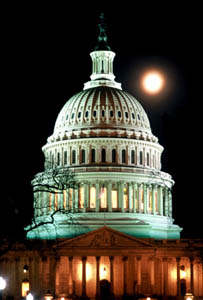Former President Barack Obama released a list of 81 congressional, state and legislative candidates in what his office calls a “first wave” of endorsements in the runup to the November elections. Here is the full list:
California
Gavin Newsom (Governor)
Eleni Kounalakis (Lt. Governor)
Josh Harder (U.S. House, CA-10)
TJ Cox (U.S. House, CA-21)
Katie Hill (U.S. House, CA-25)
Katie Porter (U.S. House, CA-45)
Harley Rouda (U.S. House, CA-48)
Mike Levin (U.S. House, CA-49)
Ammar Campa-Najjar (U.S. House, CA-50)
Buffy Wicks (State Assembly, District 15)
Colorado
Jared Polis (Governor)
Dianne Primavera (Lt. Governor)
Phil Weiser (Attorney General)
Jena Griswold (Secretary of State)
Tammy Story (State Senate, District 16)
Jessie Danielson (State Senate, District 20)
Brittany Pettersen (State Senate, District 22)
Faith Winter (State Senate, District 24)
Dylan Roberts (State House, District 26)
Dafna Michaelson Jenet (State House, District 30)
Shannon Bird (State House, District 35)
Rochelle Galindo (State House, District 50)
Julie McCluskie (State House, District 61)
Georgia
Stacey Abrams (Governor)
Sarah Riggs Amico (Lt. Governor)
Matthew Wilson (State House, District 80)
Shelly Hutchinson (State House, District 107)
Illinois
J.B. Pritzker (Governor)
Juliana Stratton (Lt. Governor)
Kwame Raoul (Attorney General)
Sean Casten (U.S. House, IL-6)
Brendan Kelly (U.S. House, IL-12)
Lauren Underwood (U.S. House, IL-14)
Iowa
Deidre DeJear (Secretary of State)
Tim Gannon (Secretary of Agriculture)
Kristin Sunde (State House, District 42)
Jennifer Konfrst (State House, District 43)
Eric Gjerde (State House, District 67)
Laura Liegois (State House, District 91)
Maine
Louis Luchini (State Senate, District 7)
Laura Fortman (State Senate, District 13)
Linda Sanborn (State Senate, District 30)
Nevada
Jacky Rosen (U.S. Senate)
Susie Lee (U.S. House, NV-3)
Steven Horsford (U.S. House, NV-4)
New Jersey
Andy Kim (U.S. House, NJ-3)
Tom Malinowski (U.S. House, NJ-7)
New Mexico
Debra Haaland (U.S. House, NM-1)
Daymon Ely (State House, District 23)
Natalie Figueroa (State House, District 30)
New York
Antonio Delgado (U.S. House, NY-19)
Anna Kaplan (State Senate, District 7)
North Carolina
Wiley Nickel (State Senate, District 16)
Ron Wesson (State House, District 1)
Terence Everitt (State House, District 35)
Julie Von Haefen (State House, District 36)
Sydney Batch (State House, District 37)
Rachel Hunt (State House, District 103)
Ohio
Richard Cordray (Governor)
Betty Sutton (Lt. Governor)
Steve Dettelbach (Attorney General)
Kathleen Clyde (Secretary of State)
Zack Space (Auditor)
Aftab Pureval (U.S. House, OH-1)
Jill Schiller (U.S. House, OH-2)
Phil Robinson (State House, District 6)
Stephanie Howse (State House, District 11)
Mary Lightbody (State House, District 19)
Beth Liston (State House, District 21)
Allison Russo (State House, District 24)
Erica Crawley (State House, District 26)
Tavia Galonski (State House, District 35)
Casey Weinstein (State House, District 37)
Taylor Sappington (State House, District 94)
Pennsylvania
Madeleine Dean (U.S. House, PA-4)
Susan Wild (U.S. House, PA-7)
Tina Davis (State Senate, District 6)
Liz Hanbidge (State House, District 61)
Carolyn Comitta (State House, District 156)
Texas
Adrienne Bell (U.S. House, TX-14)
Colin Allred (U.S. House, TX-32)
How the endorsements break down by numbers:
OFFICE
Governor – 5
Lieutenant Governor – 5
Attorney General – 3
Secretary of State – 3
Secretary of Agriculture – 1
Auditor – 1
U.S. Senate – 1
U.S. House of Representatives – 22
State Legislatures – 40
Half of the endorsements are for state legislative candidates. The significance of this is presumably twofold: to rebuild the Democratic bench that was decimated during his presidency, and to set the stage for the next census and redistricting after 2020. Curiously, he only endorsed three candidates for Secretary of State, who are the top elections official in each state and will be responsible for overseeing the 2020 primaries and presidential election. President Obama also endorsed 22 candidates for the House of Representatives, three short of the number House Democrats need to win to flip control of the chamber.
STATE
California – 10
Colorado – 13
Georgia – 4
Illinois – 6
Iowa – 6
Maine – 3
Nevada – 3
New Jersey – 2
New Mexico – 3
New York – 2
North Carolina – 6
Ohio – 16
Pennsylvania – 5
Texas – 2
Almost half of his endorsements come from three states – California, Colorado and the perennially important swing state of Ohio. Also worth noting only one endorsement for U.S. Senate – Jacky Rosen. Claire McCaskill was an enthusiastic and early backer of his in the 2008 primary, but given that Missouri has become a more conservative state during the past decade, it is likely that being endorsed by Obama would be used against her by Missouri Republicans.
Onward Together, the political organization started by former Secretary of State Hillary Clinton, made 26 donations to Democratic candidates running for the U.S. House of Representatives and Secretary of State, as well as congressional PACs, according to a review of the organization’s most recent campaign finance filing. The donations, each worth $5,000 – the maximum amount permissible by federal law, totaled $130,000.
Here is the list:
- Nelson Araujo (Nevada Secretary of State)
- Jocelyn Benson (Michigan Secretary of State)
- Sean Casten (IL-06)
- Kathleen Clyde (Ohio Secretary of State)
- TJ Cox (CA-21)
- Jason Crow (CO-06)
- Deidre DeJear (Iowa Secretary of State)
- Deb Haaland (NM-01)
- Josh Harder (CA-10)
- Katie Hill (CA-25)
- Steven Horsford (NV-04)
- Mike Levin (CA-49)
- Lucy McBath (GA-06)
- Gina Ortiz Jones (TX-23)
- Katie Porter (CA-45)
- Aftab Pureval (OH-01)
- Harley Rouda (CA-48)
- Talley Sargent (WV-02)
- Mary Gay Scanlon (PA-05)
- Lauren Underwood (IL-14)
- Scott Wallace (PA-01)
- Susan Wild (PA-07)
- Jennifer Wexton (VA-10)
- ASPIRE (Congressional Asian Pacific American Caucus)
- Bold PAC (Congressional Hispanic Caucus)
- Congressional Black Caucus PAC
How the donations break down by numbers:
House of Representatives – 19
Secretary of State – 4
Congressional PACs – 3
The story was first reported by CNN.


